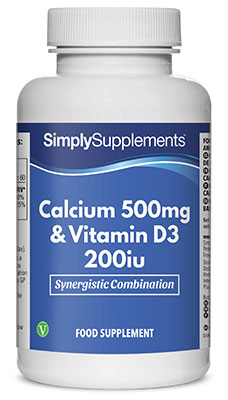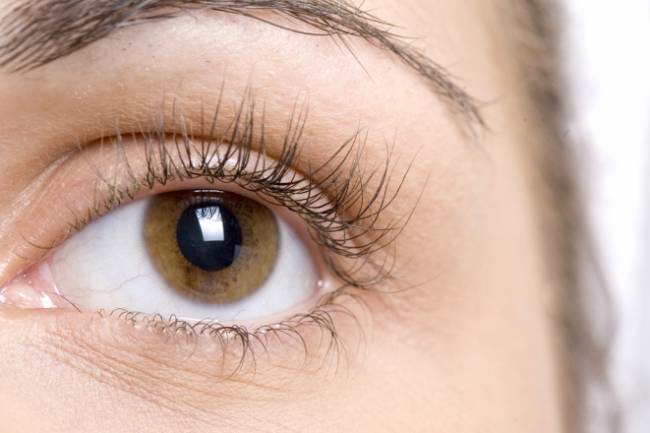Health Benefits of Calcium

Calcium is the most abundant mineral in the body, accounting for approximately 2% of our total body weight, and is important for people of all ages.
During childhood and adolescence calcium plays an essential role in building strong bone and teeth, and as we mature, it prevents bones becoming porous and weak.
Calcium has also been shown to promote normal muscle contraction, blood pressure and weight maintenance.
What Is Calcium?
Calcium forms approximately 2% of our body weight, which equates to around 1200 grams. Nearly 99% of the body’s calcium is deposited in the bones and teeth, where it provides integral structural support and reduces the risk of bone loss. The remaining 1% circulates in the blood support blood clotting, muscle contraction, and neurotransmitter secretion.
In order to grow and maintain strong and healthy bones, calcium works in combination with other vitamins and minerals, particularly vitamin D, magnesium and vitamin K. It is worth noting that the body requires sufficient levels of vitamin D in order to absorb and use any calcium.
Benefits of Calcium
Many people are aware of the bone-related benefits of calcium, but fewer realise that this essential mineral offers many other health benefits.
- Bones: Calcium is essential for achieving peak bone mass, strength and integrity. As we age, it may help to slow age-related bone loss, particularly for post-menopausal women, and may reduce the risk of osteoporosis.
- Teeth and gums: Calcium keeps the jaw bone strong, which helps to prevent teeth becoming loose and reduces the chance of infection.
- Weight maintenance: Several studies have shown that taking 1300 to 1400mg of calcium per day may help to reduce body fat after 18 months. It is thought that calcium plays a role in how fat is broken down and stored - the more calcium in a fat cell, the more it burns.
- Heart function: Calcium appears to protect the heart muscles by regulating their ability to contract and relax. In supplement form, it has shown modest blood pressure lowering effects and may be beneficial in reducing the risk of cardiovascular disease.
- Colon cancer: Calcium, in combination with vitamin D, has shown promise in reducing the recurrence of polyps in the colon by 18%. However, the evidence is limited and more studies are needed to determine a conclusive effect.
Calcium and Bone Health
The human body continuously breaks down and rebuilds bone. When the body is young, this process takes place rapidly to promote growth, and bone mass continues to grow through the twenties. By the age of thirty bones have reached peak bone mass, strength and density, and at the rebuilding process begins to slow resulting in a gradual loss of calcium from the bones. At this point, dietary sources of calcium become even more important to protect against declining calcium levels.
Many women experience accelerated bone loss for five to ten years following menopause due to declining oestrogen levels, which had previously had a protective effect on bones. This can increase the risk of osteoporosis and fractures in later life.
It is essential to maintain a healthy intake of calcium through the diet. When dietary supplies of calcium are insufficient the body ‘borrows’ calcium from the bones in order to restore normal calcium levels in the blood. If dietary levels remain low, bone loss continues and the bones become weak, brittle and prone to fractures.
Calcium Deficiency
If your calcium intake is insufficient, it can affect the body in several ways. In adults, calcium deficiency can result in bone-weakening diseases such as osteoporosis. Adolescents and adult women are two population groups who generally consume low amounts of calcium, and are therefore more at risk of deficiency.
Other common risk factors for calcium deficiency include:
- Consuming a low calorie or restricted diet
- Post-menopause due to declining oestrogen levels
- Osteoporosis
- Breastfeeding
- Coeliac disease
Common symptoms of calcium deficiency in adults include:
- Muscle twitches or spasms
- Muscular aches
In children, rickets occurs, symptoms of which include:
- Bowed legs
- Sunken chests
- Beaded ribs
In most cases, dietary intake of calcium can gradually reverse the effects of deficiency. There are lots of steps you can take to protect bone density and reduce the risk of calcium loss, including exercise, diet and supplements.
Sources of Calcium
The best sources of calcium are dairy products such as milk, cheese and yoghurt, and for many of us, these provide over 40% of our calcium intake. If you do not consume dairy produce (vegetarian or lactose intolerant), other good sources of calcium include nuts, tinned salmon, seeds and leafy green vegetables such as broccoli and spinach.
Diet should always be the main source of calcium. However, certain people can benefit from adding calcium supplements to their diet. These are available as tablets, chewable's and liquids.
How Much Calcium Do I Need?
The daily Nutrient Reference Value (NRV) for calcium is 700mg for most adults, however, larger amounts are needed during adolescence, lactation and later life.
- For adults take 700mg per day
- For women post-menopause take 1200mg per day
- For adults with osteoporosis take 1500mg per day
- During pregnancy take 1250mg per day
- For adolescents take 800mg (girls) / 1000mg (boys) per day
- For children provide 550mg per day
- For infants provide 525mg per day
During pregnancy, you do not need to increase your intake of calcium, but if you are breastfeeding you are advised to consume 1250mg on a daily basis.
Calcium side effects and interactions
Calcium is safe when taken at the right dose. However, high doses over 1500mg per day may cause mild side effects such as stomach pain and diarrhoea. There are some reports that very high doses have also resulted in kidney stones. For these reasons, you are not advised to take more than 1500mg unless instructed by your doctor.

 Nicole
Nicole 

























